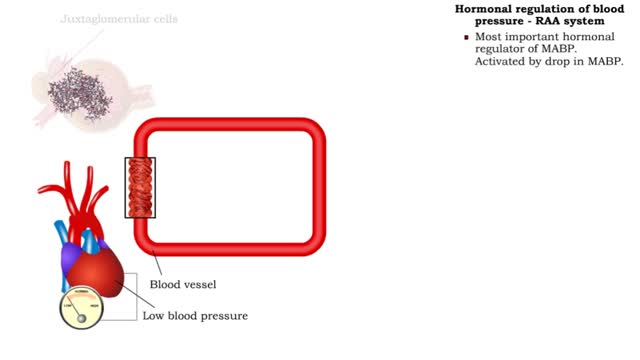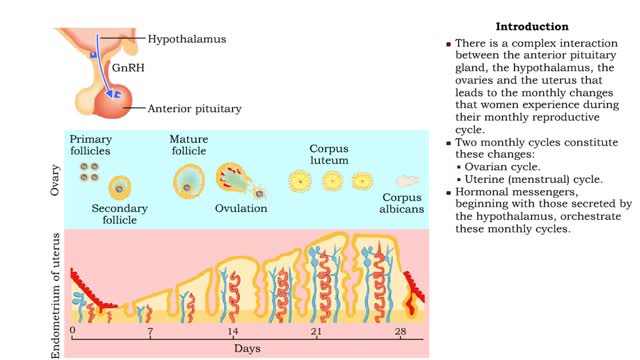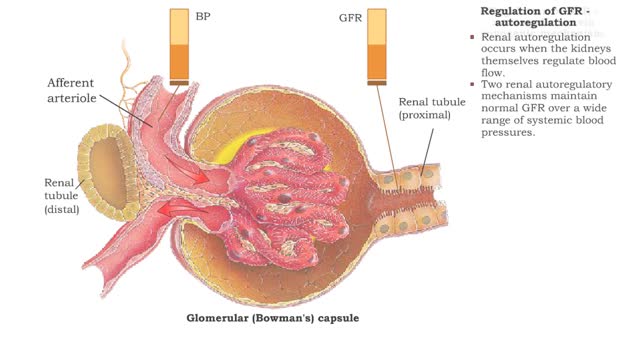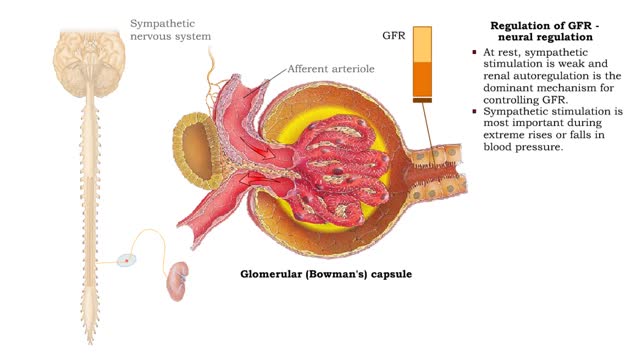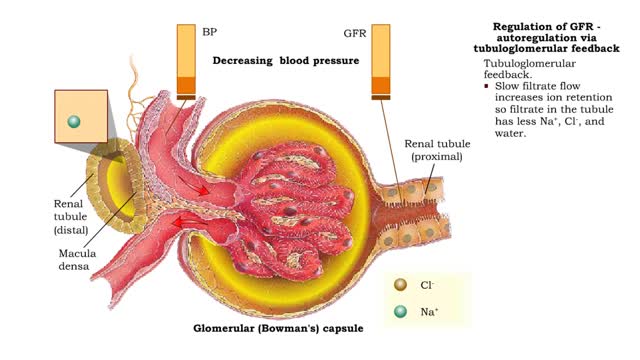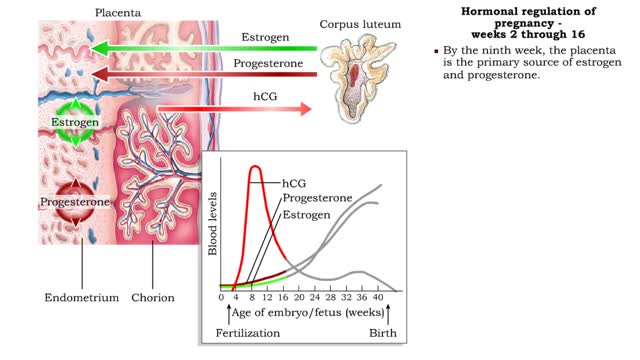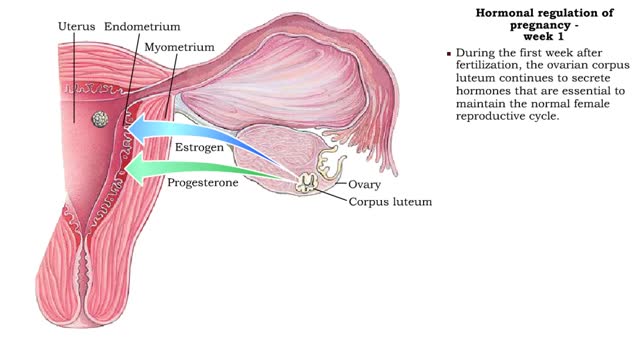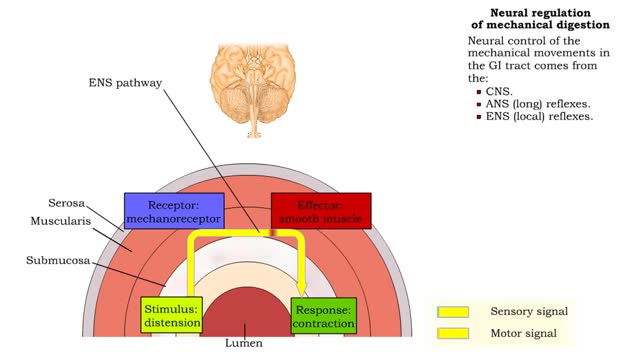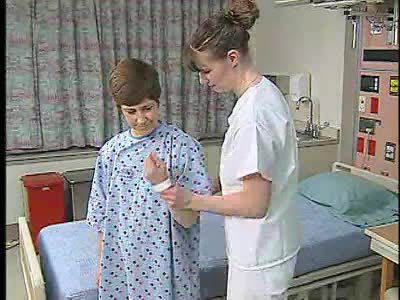Search Results
Results for: 'hormonal regulation'
Hormonal regulation of blood pressure - RAA system
By: HWC, Views: 11543
■ Long-term regulation of MABP is under hormonal control. • Hormones that affect blood pressure and volume: the renin-angiotensin-aldosterone (RAA) system, antidiuretic hormone (ADM), and atrial natriuretic peptide (ANP). ■ Most important hormonal regulator of MABP. Activated by drop in...
Female Reproductive System - Hormonal regulation (GnRH) الجهاز التناسلي للأنثى - التنظيم الهرموني
By: HWC, Views: 11469
• There is a complex interaction between the anterior pituitary gland, the hypothalamus, the ovaries and the uterus that leads to the monthly changes that women experience during their monthly reproductive cycle. • Two monthly cycles constitute these changes: • Ovarian cycle. • Uter...
Regulation of GFR: three methods, autoregulation & autoregulation via myogenic mechanism
By: HWC, Views: 11564
• GFR can be regulated by adjusting: • Blood flow in and out of the glomerular capillaries. • Surface area of glomerular capillaries. • There are three main ways to make these adjustments: • Renal autoregulation. • Nervous regulation. • Hormonal regulation. • Ren...
Regulation of GFR: autoregulation via tubuloglomerular feedback, neural & hormonal regulation
By: HWC, Views: 12095
• When blood pressure is above normal, rapid filtrate flow reduces ion retention so filtrate in tubule has more Na+, C1-, and water. • It is believed that vasoconstricting chemicals from the juxtaglomerular cells are released when the macula densa cells detect higher water and ion levels in ...
Regulation of GFR: autoregulation via myogenic mechanism Myogenic mechanism
By: HWC, Views: 12593
• GFR can be regulated by adjusting: • Blood flow in and out of the glomerular capillaries. • Surface area of glomerular capillaries. • There are three main ways to make these adjustments: • Renal autoregulation. • Nervous regulation. • Renal autoregulation occurs when...
Hormonal regulation of pregnancy - weeks 2 through 38
By: HWC, Views: 11475
Weeks 2 through 16 • During the first few months of pregnancy, estrogen and progesterone are secreted primarily by the corpus luteum. • These hormones act to maintain nutritional support for the embryo and fetus. • hCG production increases, peaking at 8 weeks. • hCG triggers the c...
Hormonal regulation of pregnancy - week 1
By: HWC, Views: 11355
• During pregnancy, hormones play a significant role in triggering changes in the mother and fetus. • Ormones : • Maintain the lining of the uterus and prevent menstruation. Prepare the mammary glands for lactation. • Increase flexibility of the pubic symphysis. • Affect the mot...
Neural regulation of mechanical digestion- CNS voluntary, ANS & ENS controlled involuntary movements
By: HWC, Views: 10969
• The gastrointestinal [GI] tract is basically a muscular tube that contains and processes food as it moves from the mouth to the anus. • Mechanical digestive functions consist of both voluntary and involuntary muscle contractions and relaxation including: • Chewing and swallowing food....
By: Administrator, Views: 13901
Atrophy is the partial or complete wasting away of a part of the body. Causes of atrophy include mutations (which can destroy the gene to build up the organ), poor nourishment, poor circulation, loss of hormonal support, loss of nerve supply to the target organ, excessive amount of apoptosis of c...
Advertisement



